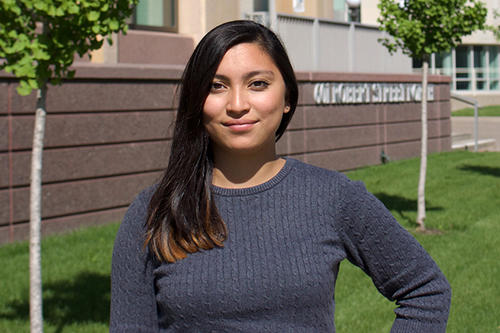
Growing up on the shore of Lake Superior, Jessica Tarnowski spent time exploring the natural world with her older brother. They threw rocks into the lake, dug holes in the towering snowbanks, and asked questions—lots of questions.
“My mom encouraged our curiosity,” says Tarnowski. “She always tried to give an answer or point us in the right direction. I realized I liked to ask questions.”
Tarnowski earned her degree this spring in genetics, cell biology and development from the College of Biological Sciences (CBS). She plans to pursue a graduate degree in genetic counseling and is set on a career in public health.
She started down that path as an undergraduate while interning with the Minnesota Department of Health’s Newborn Screening Program, where she developed community-based communication strategies for reaching the parents of newborns at risk for sickle-cell anemia.
Tarnowski recalls how she first learned about the prevalence of carrier status for sickle cell and cystic fibrosis in her high school biology class. “I was really intrigued at the time. Why did these traits come about? I began to understand how environment can affect traits, and as someone who is multicultural, learning about all of the factors that contribute to hereditary diseases was especially compelling.”
Post-graduation she took a job at the Department of Health, where she connects families impacted by diseases such as sickle-cell anemia to counseling services and community education resources.
“I have always been passionate about science and helping people,” says Tarnowski. “Team-based learning and discovery were a big part of my CBS experience, and that ease working with others is really important in my current role.”
- Categories:
- Education





